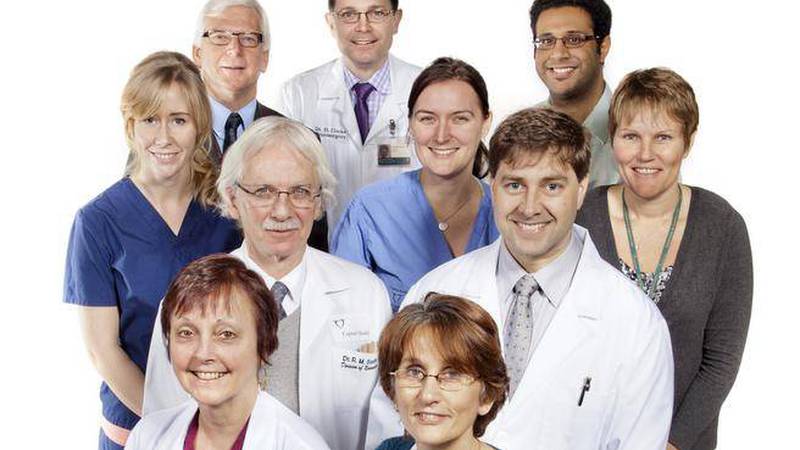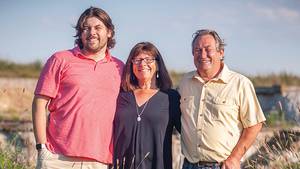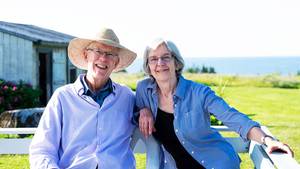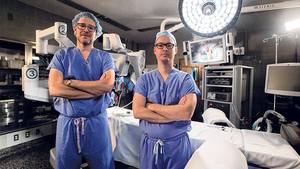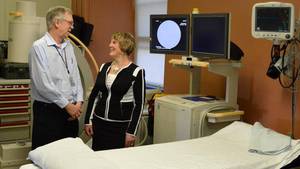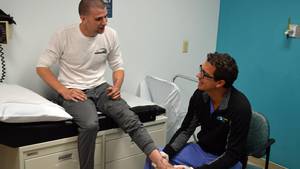 |
| The QEII’s neuroscience team is working together to prevent, treat and cure neural and sensory disorders. (Darren Hubley) |
There is no doubt that healthcare professionals are passionate and dedicated to outstanding patient care. Sometimes that passion and dedication runs so deep, it translates into financial support for advanced patient care.
Like the recent donations to the QEII Foundation from members of the QEII’s Division of Neurosurgery and the Division of Neurology that brings the dream of establishing Atlantic Canada’s first Academic Neuroscience Program at the QEII one step closer.
The two divisions have come together with other QEII Foundation donors to bring to life the promise of
Dr. David Clarke, head of neurosurgery, believes strongly in the goals of the alliance, consolidating neurosurgery, neurology and spine patient care into one shared space. Currently, they are in different areas of the health centre.
“This program will bring together the people who have the fundamental expertise and interest in looking after these patients — the dieticians, surgeons, nurses, physiotherapists, physicians, occupational therapists, social workers and others,” he says.
Working side-by-side, this truly multi-disciplinary team will bring the best possible care to the bedside. This new program will foster research, innovation and provide patients with the expertise they require.
The new neuroscience program will also see expanded space and capacity. It will increase the intermediate care unit from four beds to six, and the number of epilepsy monitoring unit beds will double. These monitoring unit beds are key for investigation of difficult epilepsy cases and, with increased capacity, wait times will be significantly reduced. It will also consolidate the spine program into a common clinical space. Teams from orthopaedics, neurosurgery and rehabilitation medicine will be brought together so that patients can benefit from their shared expertise.
The program will also enhance the technology in the health centre, such as a Robotic Stereotactic Surgical Assistant to help with brain surgery and equipment to monitor the function of the spinal cord during surgery.
“We have such an opportunity to make profound influences on patients with neurological problems,” Dr. Clarke says. “It’s a privilege to work here with such a talented team of people.”
Dr. Charles Maxner, former head of the neurology division, agrees the integrated approach will improve patients' lives through better care. “We believe so strongly in the program that we are proud to help fund it,” he says.
Surgeons’ and physicians’ gifts from neurosurgery and neurology have jump-started the fundraising campaign,
Dr. Maxner sees a brighter future for people who need treatment for neural and sensory disorders.
“They may not be employed, they may be off on disability, they may not be able to go to school. Their lives are on hold, and there can be suffering affiliated with that as well,” he says. “If you can deliver their care faster, you can help them get back to life sooner. It really is life-altering.”
The advances are exciting news for people like Stephanie Bertossi, who had a stroke at the age of 44. When she was experiencing the stroke, her husband Maurizio raced her to the QEII.
“I think I had my CT scan before they even knew my name. The team at emergency moved so fast and started my treatment right away; their care was absolutely amazing and it gave me the best chance at recovery,” she says.
“People would often say to me, ‘You don’t look like you’ve had a stroke’. But recovery was very real for me.”
With ongoing work towards fully funding the program, Drs. Clarke and Maxner hope to see the Academic Neuroscience Program take shape in the next year. This means patients like Stephanie will have the most advanced care available, getting them back to what matters most - their lives with friends and family.

